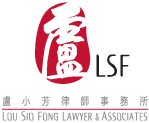Best Real Estate Due Diligence Lawyers in Macao
Share your needs with us, get contacted by law firms.
Free. Takes 2 min.
Free Guide to Hiring a Real Estate Lawyer
List of the best lawyers in Macao, Macao
About Real Estate Due Diligence Law in Macao, Macao
Real estate due diligence in Macao, Macao refers to the thorough investigation and assessment of property prior to purchase, lease, or transaction. This process is designed to ensure that buyers, investors, or lessors fully understand the legal, financial, and physical status of the property. Local laws and regulations govern how these checks should be conducted, providing frameworks to protect all parties and ensure transparent and lawful transactions. Due diligence is crucial in minimizing risks such as ownership disputes, unpaid encumbrances, and compliance issues related to zoning and construction.
Why You May Need a Lawyer
While some aspects of real estate due diligence can be managed independently, there are several situations in Macao where having a legal expert is highly advisable:
- Verifying the authenticity and legality of property documents
- Identifying and resolving ownership disputes or claims
- Checking for existing mortgages, liens, or encumbrances that could affect the transaction
- Ensuring compliance with zoning, urban planning, and land use regulations
- Reviewing contracts to prevent unfavorable clauses and protecting your legal rights
- Navigating requirements for foreign buyers or investors
- Managing complexities in transactions involving inherited or shared properties
- Dealing with issues related to building permits, licensing, and property registration
A lawyer can help you navigate the intricacies of Macao’s unique legal system, which integrates aspects of Portuguese civil law, and minimize potential risks in your real estate dealings.
Local Laws Overview
The legal framework governing real estate due diligence in Macao is primarily based on the Civil Code, Land Law, and specific regulations relating to property registration and urban planning. Important local considerations include:
- Property Ownership: All property rights, including ownership and registration, are governed by the Macao Civil Code. Checking the Land Registry for clear title is mandatory.
- Registration: Not all property transfers are valid unless they are registered at the Real Estate Registry Office (Conservatória do Registo Predial).
- Encumbrances: Unpaid taxes, mortgages, or liens against a property may transfer to the new owner if not properly addressed.
- Zoning and Land Use: Properties are subject to local urban planning regulations. Confirming the permitted use and development rights is essential.
- Building Compliance: Verifying that construction complies with licensing and safety regulations helps avoid future legal liabilities.
- Foreign Ownership: While Macao permits foreign ownership of some property, particular conditions and restrictions may apply.
- Inheritance Issues: Local inheritance laws may affect transfers, especially where heirs or shared ownership is involved.
- Contract Law: Purchase and sale agreements must conform to legal requirements regarding form and content.
Real estate transactions in Macao require careful compliance with these legal stipulations to ensure validity and avoid future disputes.
Frequently Asked Questions
What is real estate due diligence in Macao?
It is a process of investigating a property before finalizing a transaction, ensuring the asset is legally clear, physically sound, and free from unexpected liabilities.
Why is due diligence important when buying property in Macao?
It helps buyers uncover potential issues such as unclear ownership, unpaid debts, or illegal construction, protecting them from legal and financial risks.
Can foreigners buy property in Macao?
Yes, foreigners can purchase property in Macao, although some restrictions may apply depending on the type and location of the property.
What documents should I check during due diligence?
Key documents include the land registry certificate, property tax receipts, building permits, proof of paid utilities, and any existing lease agreements or encumbrances.
How can I confirm the ownership of a property?
Ownership can be verified through the Real Estate Registry Office, which provides official records on title and registered encumbrances.
What happens if a property has outstanding debts or taxes?
If these are not cleared, the new owner may inherit responsibility for unpaid taxes or debts. Due diligence helps identify and resolve such issues before purchase.
Are verbal property agreements legally binding in Macao?
No, property transactions must be documented in writing and registered to be valid.
Is it necessary to have a lawyer handle real estate transactions?
While not always legally required, it is strongly advisable, especially for complex cases, to ensure all legal aspects are properly addressed.
What are common risks of skipping due diligence?
Risks include discovering hidden debts, ownership disputes, zoning violations, or unregistered structures after purchase.
How long does the due diligence process usually take?
The timeline varies but typically ranges from a few days to several weeks, depending on the property’s complexity and documentation availability.
Additional Resources
For further information and assistance with real estate due diligence in Macao, consider contacting or consulting the following:
- Real Estate Registry Office (Conservatória do Registo Predial)
- Macao Land, Public Works and Transport Bureau (Direcção dos Serviços de Solos, Obras Públicas e Transportes)
- Macao Lawyers Association (Associação dos Advogados de Macau)
- Macao Consumer Council
- Notary Offices for authentication of documents
These resources provide official information, legal advice, and support for individuals and businesses involved in real estate transactions.
Next Steps
If you are considering a property transaction in Macao or have concerns about real estate due diligence, follow these steps for a smoother process:
- Gather all relevant property documents
- Consult the Real Estate Registry Office to verify ownership and check for encumbrances
- Seek legal advice from a lawyer experienced in Macao real estate law
- Clarify any potential issues regarding zoning, land use, or building compliance
- Ensure contracts and agreements are thoroughly reviewed before signing
- Address any financial or regulatory concerns prior to the transaction
Taking these steps with professional assistance will help reduce risks and provide peace of mind throughout your real estate journey in Macao.
Lawzana helps you find the best lawyers and law firms in Macao through a curated and pre-screened list of qualified legal professionals. Our platform offers rankings and detailed profiles of attorneys and law firms, allowing you to compare based on practice areas, including Real Estate Due Diligence, experience, and client feedback.
Each profile includes a description of the firm's areas of practice, client reviews, team members and partners, year of establishment, spoken languages, office locations, contact information, social media presence, and any published articles or resources. Most firms on our platform speak English and are experienced in both local and international legal matters.
Get a quote from top-rated law firms in Macao, Macao — quickly, securely, and without unnecessary hassle.
Disclaimer:
The information provided on this page is for general informational purposes only and does not constitute legal advice. While we strive to ensure the accuracy and relevance of the content, legal information may change over time, and interpretations of the law can vary. You should always consult with a qualified legal professional for advice specific to your situation.
We disclaim all liability for actions taken or not taken based on the content of this page. If you believe any information is incorrect or outdated, please contact us, and we will review and update it where appropriate.









